Has Singapore’s ‘town council strategy’ to hamstring opposition parties run its course?
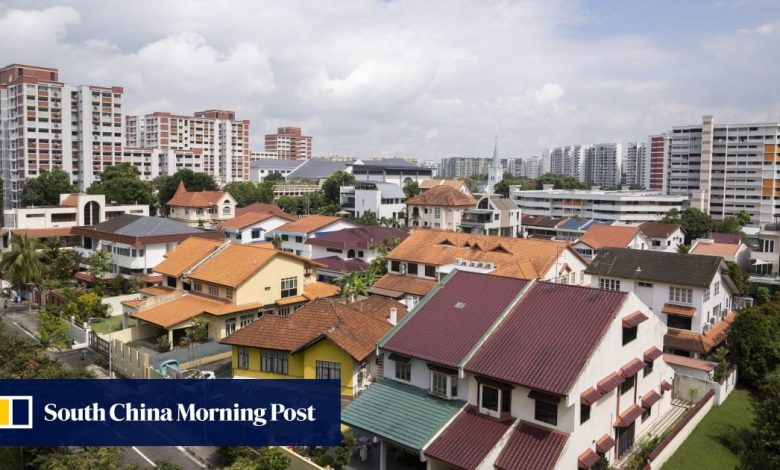
The case had been mounted against eight parties, which included WP leader Sylvia Lim, opposition stalwart Low Thia Khiang and Leader of the Opposition Pritam Singh. The others include managing agent FM Solutions and Services (FMSS) and its owners How Weng Fan and her late husband Danny Loh.
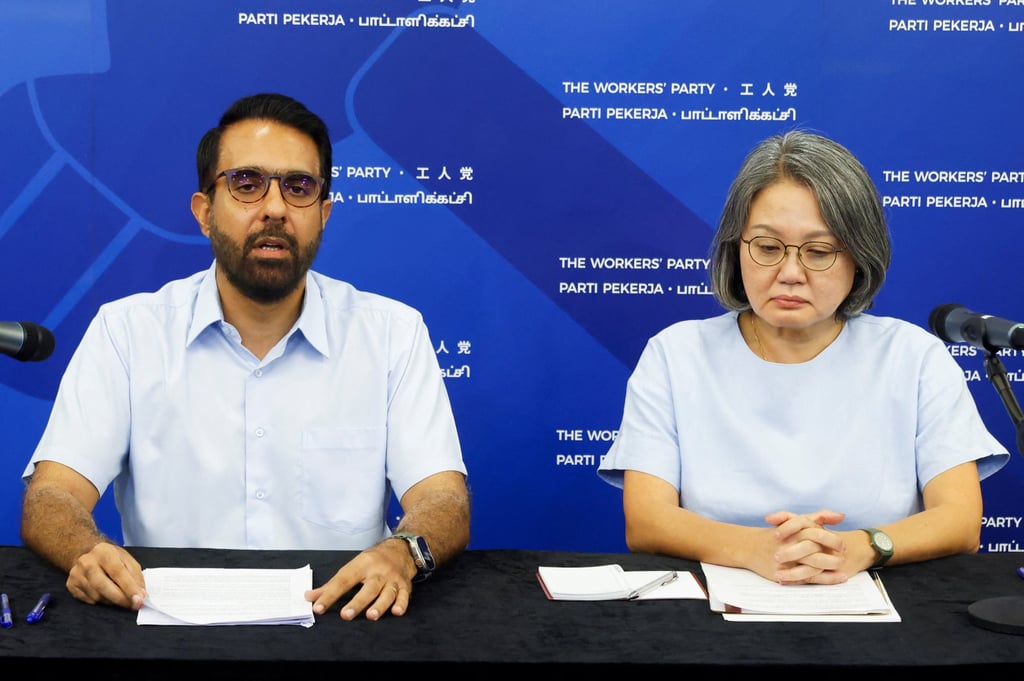
However, in the years since the case went to court in 2018 and dozens of media reports later, the decision to reach a settlement suggests that “instead of garnering political mileage, it has culminated in legal fatigue”, according to Mustafa Izzuddin, a senior international-affairs analyst at consultancy Solaris Strategies Singapore.
“The political mileage that can be gotten out of this saga is limited and will not be the defining factor in determining the electoral outcome. As this saga has gone on for quite some time, there is legal fatigue coupled with it getting more expensive the longer the lawsuit gets dragged on,” he added.
Back in 2011, soon after the WP won Aljunied GRC, it awarded a managing agent contract to FMSS, a newly set up company run by How and Loh, both party supporters.
In Singapore, where 80 per cent of the population lives in public housing, town councils are helmed by elected MPs who oversee the smooth running of the estates, including ensuring amenities are well-run and maintained and neighbourhoods are kept clean. Most town councils are run by managing agents who then subcontract out the work. The contracts are worth millions each month.
By 2014, the government directed its own auditors to go through the Aljunied town council’s books, after the council’s auditor found issues of concern. The implication was that there was a credible case of mismanagement of funds by the opposition-held town council.
In February 2015 the Auditor-General’s Office released a special report on major lapses at the town council, including the management of sinking funds and governance of related party transactions resulting from the owners of FMSS also being staff members of the town council.
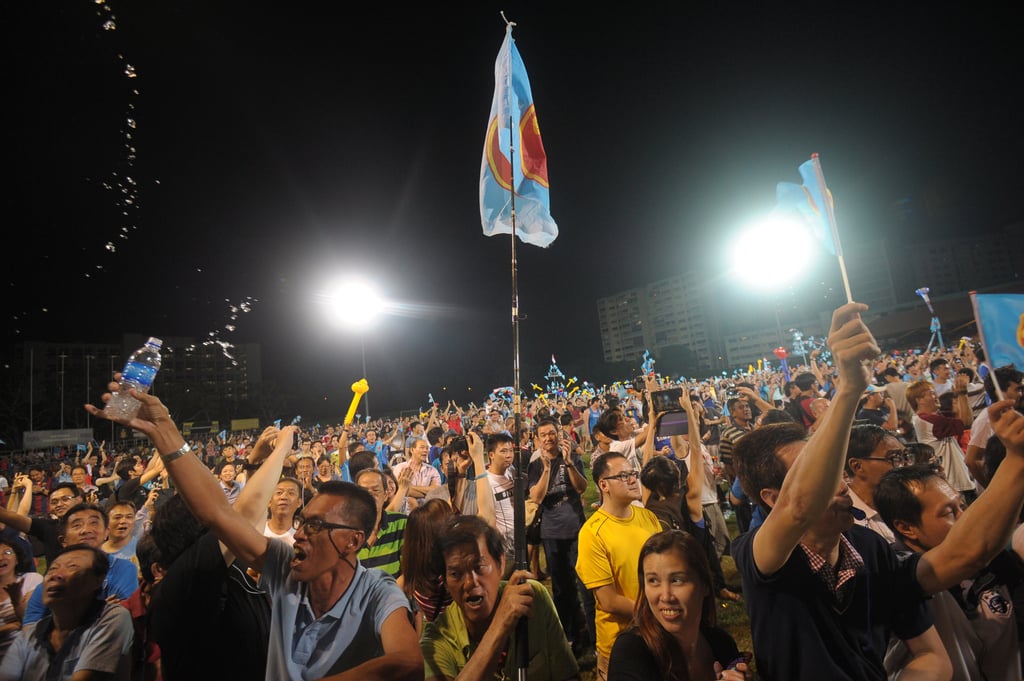
But in the September 2015 general election, this issue did not appear to strike a chord with voters as the WP retained Aljunied GRC and its stronghold ward of Hougang, but lost one seat, Punggol East. All three wards were run by the same amalgamated town council then.
In 2017, the town council – which is a government entity and under an independent panel’s direction – initiated legal action against the town councillors, including WP chief Low and party chairman Lim and Singh, accusing them of breaching their fiduciary duties. The MPs denied the allegations.
The suits claimed the defendants breached their fiduciary duties, and had to repay the improper payments made.
Party supporters have rallied around the three leaders, with the three even launching a crowdfunding campaign in 2018 after claims that the lawsuit had eaten into their personal funds. The drive saw the lawmakers – who said they were raising funds in a personal capacity – collect more than S$1 million over three days.
Meanwhile, in the 2020 general election, WP again retained Aljunied and Hougang constituencies and went on to secure its second multi-ward seat, Sengkang group representation constituency or GRC, in a knife-edge victory.
Again, despite the festering allegations of financial mismanagement, the WP team won and won big this time, showing the issue had not registered negatively with voters, or not enough to repel them.

In November 2022, the apex court ruled that the town councillors acted in good faith in the hiring of FMSS but were negligent in allowing conflicts of interest to persist at AHTC. While Singh was found not liable, Low and Lim were found liable for allowing control failures in the payment process. The court later awarded costs to the WP MPs.
With the settlement terms being kept confidential, no one knows who was ultimately at fault or why the case had to drag on for so long and who won or who really lost, but residents This Week in Asia spoke to said they had long given up on caring about the case.
Political rationale of town councils
Town councils were a political battleground between the incumbent and opposition back in the 1980s and 1990s, but political analysts say the strategy no longer has the same compelling effect today to make voters pause, compared to the early years.
As part of the Town Councils Act, MPs in 1989 were given the authority and responsibility to manage public housing estates in their constituencies. Then founding father Lee Kuan Yew said town councils were a way to see if elected MPs had the ability to run estates.
During his national day address in 1988, Lee said: “If your MP is not honest, or not competent, you will know it soon enough. And if your estate is poorly run, repairs slow, and lift maintenance poor, you will be inconvenienced and worse, the resale value of your flat will be affected … Your personal well-being will be at stake when you choose your MP.”
In those early years, another way the ruling party tried to use the town councils to deter voters from going with the opposition was by warning that those held by them would not be given priority in services.
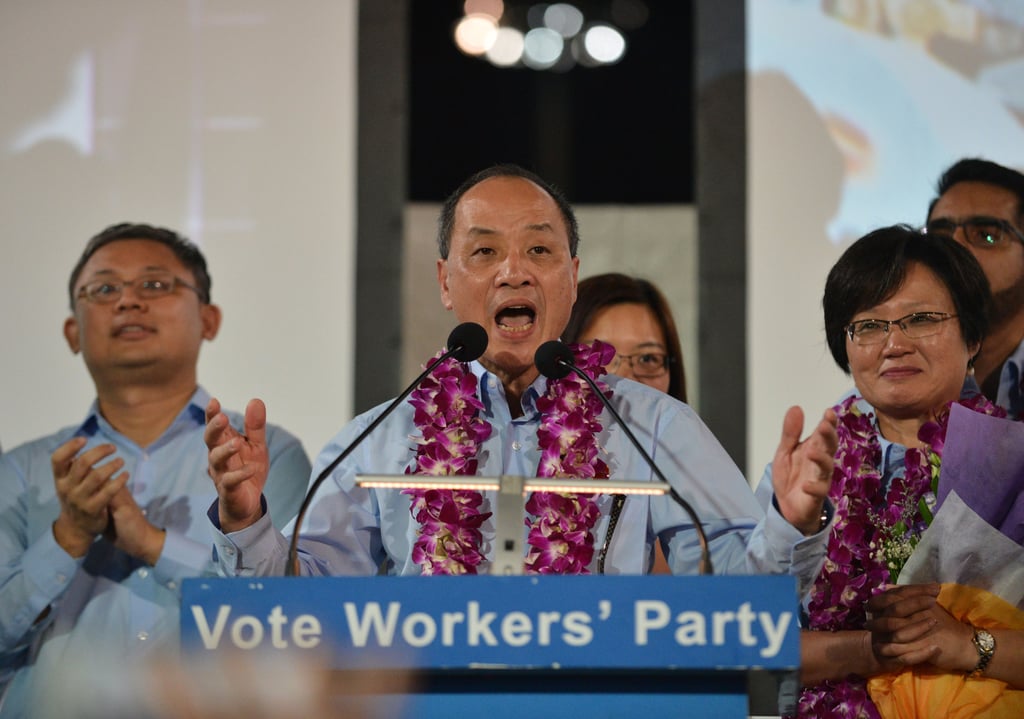
But as the opposition scored electoral wins in single seats such as Potong Pasir in 1984 and Hougang helmed then by WP veteran Low in 1991, voters also saw opposition-led town councils could function, even if their wards had fewer amenities and did not benefit from the economies of scale that the ruling party’s councils could given their dominance.
With the electoral breakthrough in Aljunied GRC – a five-member ward which also means a far bigger physical constituency than a single seat – the WP again proved it could run the estate as well as the PAP’s estates in neighbouring wards.
What experts are saying
“The fear factor of a WP-run town council has waned significantly,” said Eugene Tan, law professor at Singapore Management University, adding that it had managed to build up a strong track record over the years.
“The WP has shown since they first ran their first town council in Hougang from 1991 that they are equal to the task of competently running a town council that will result in WP-run estates not becoming slums.”
Echoing his sentiment, Kasthuri Prameswaren, a Singapore University of Social Sciences lecturer specialising in Singapore and Southeast Asia politics, said the idea that constituencies ruled by opposition parties were not as well managed might be a thing of the past.
“Perhaps this was a sentiment held in the yesteryears but not currently,” she said, noting that the capacity of the opposition had also grown in the years, making them more capable of maintaining constituencies.
“The capacity of the then-opposition to manage the estates vis-à-vis their ability to manage it well now is something we should also consider.”
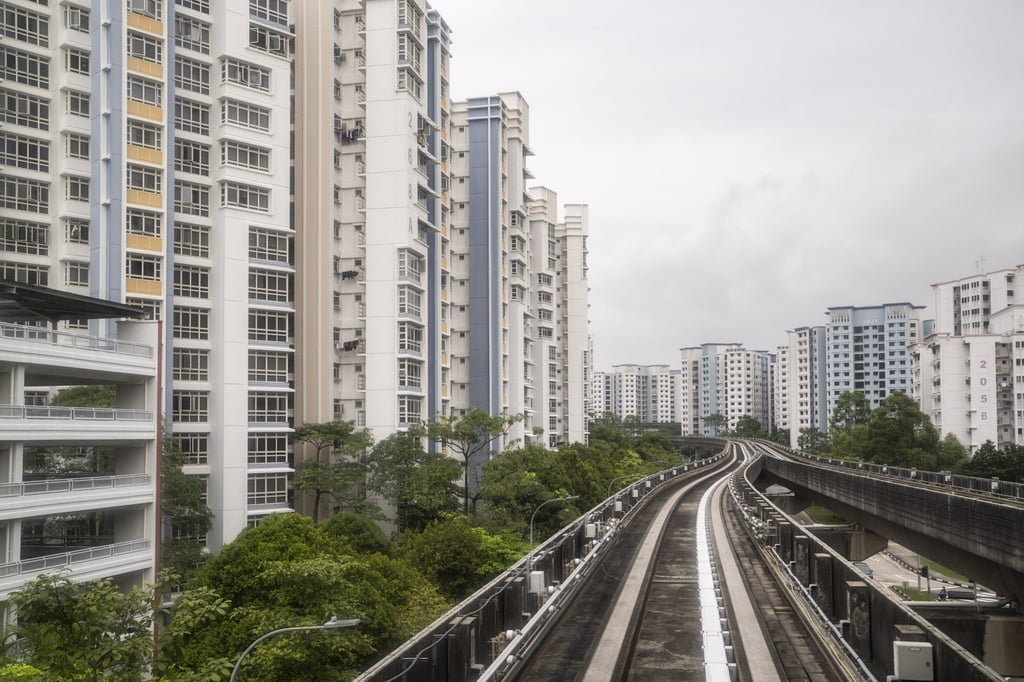
Political observers who spoke to This Week in Asia say while the heart of the legal battle might have had to do with financial matters, ordinary Singaporeans read it as an attempt to trip up the opposition. Given the long, tortured course of the case and the complex arguments and counterarguments, voters also lost interest.
However, the outcome of the case was ultimately a win for the WP, though it was unlikely to “feature significantly as an election issue”, said Tan.
“For the WP, the settlement will be narrated by the party and seen by the public as vindicating WP’s running of the town councils and that there was no impropriety. There may also be the view that the lawsuits were much to do about nothing but politics by other means,” he said.
Andrew Lim, 26, a resident of Aljunied his entire life, read up about the case when it first broke years ago but lost interest as it dragged on.
“I don’t really spend a lot of time around my neighbourhood nor do I participate in a lot of neighbourhood activities, so the impact on daily life was minimal. There were also no developments for a long time,” he said.
Tan said: “The optics are likely to look better for the WP and the town councillors than it would be for the town councils. For now, the settlement brings an end to the hard-fought dispute.”





